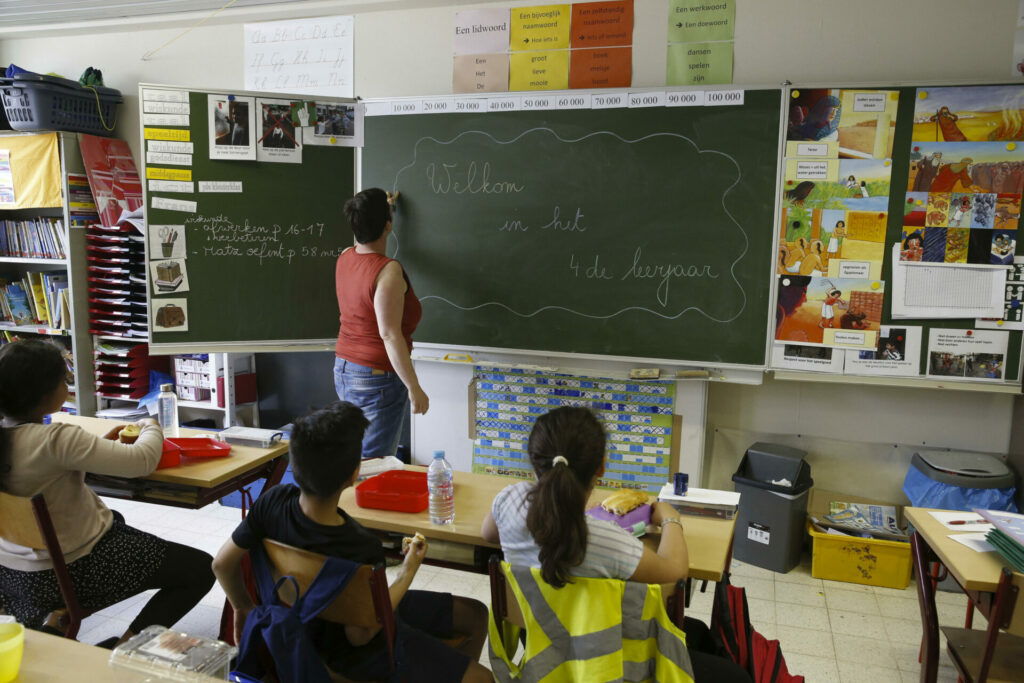One in three young Belgians are now dropping out of school. In recent years, the problem has worsened, while profiles are diversifying.
"The age of young people who are dropping out has fallen sharply. Ten years ago, we were talking mostly about boys between the ages of 16 and 18,” says Diane Hennebert, founder of Out of the box, an association that supports teenagers who drop out of school. “Today, there are also many girls who no longer want to go to school, and it starts at 13 or 14 years old."
The association, supported by private sponsorships, occupies an opulent house in Etterbeek, in the Brussels Region. The young people prepare and eat breakfast and dinner together. In the dining room next to the classrooms, a library sharpens the curiosity of the teenagers who came here to revive their interest in learning and regain confidence.
"Out of the Box is a workshop of urban and creative pedagogy rather than a school in the traditional sense of the word," says Hennebert. Here there are no classes as such, but workshops in languages, arts, dance, theatre or philosophy. There is no quantified evaluation either, but reciprocal evaluations between students and adult supervisors.
"The young people who are here hate school," says Hennebert. "But that's not to say they don't want to learn. Our role is also to dissociate this fear or refusal of the school system from the pleasure of learning. I don't see why you would learn less well with a cup of tea in front of you."
Profound lack of faith in system
The twenty or so young people present at the centre have one major thing in common: a gradual but profound lack of faith in the traditional school system. But each one has their own specific reason for dropping out. Elisabeth dropped out following "health problems". Mounji, on the other hand, has "always had a lot of trouble with authority".
Bullying is also an issue which leads young people to the door of Out of the Box. Every second young person at the centre has a tale of harassment by other students at their former school."I tried to go back to school after two months,” says Laly who is 16. “Then it started again. So, I dropped out again." Laly hasn't really been in school for three years now.
Related News
- Constitutional Court annuls Flanders' attainment targets for secondary school
- While temperatures rise, students' grades drop
"I no longer had any social contact,” she says. “I was looking for a reason to start getting up every day again, to get back on track. I arrived here, where I was able to overcome my school phobia and manage to put myself back in a group without being afraid of others." She has no plans to return to regular school in September but does have ambitions to study for a degree in the future.
'We really learn things'
For Laly and others, the difference here is profound. Mounji and Léo, two 17-year-old boys who dropped out at the start of secondary school, both found a youth-adult ratio at the centre that suits them much more than in the traditional school system.
"The teachers here show no superiority over us," says Leo. "That's what I like the most here. You can really be natural. We really learn things, not get turned into sheep."
"I have a pretty impressive thirst for learning," Mounji says. "But school was absolutely not suitable for me. I felt like I had to stuff my brain with information and then spit it back onto a sheet of paper. I felt like I was learning 30 times more by spending a day at home.”
Mounji believes that neither students nor teachers are happy with the current school system. As a result, people are dissatisfied and unpleasant at school. “There are more and more young people who are struggling to cope in this system, which is very, very different from how our society works now," he says.

